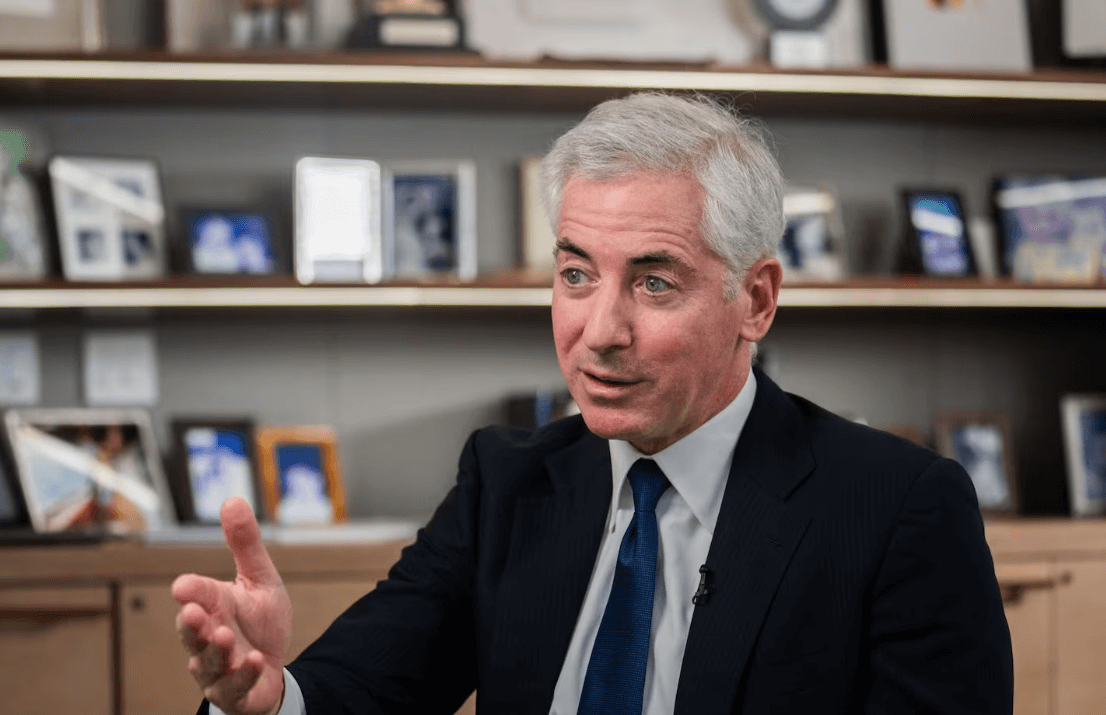哈佛大学大捐赠者带着更多想法回来了,以修复他们的母校

【中美创新时报2024 年 10 月 13 日编译讯】(记者温友平编译)去年,一些知名捐赠者猛烈抨击哈佛大学对 10 月 7 日哈马斯领导的对以色列袭击事件校园反应的处理方式。一些人宣布,他们将冻结捐款,直到大学镇压学生抗议者、采取更多措施打击反犹太主义并减少对多样性的关注。《波士顿环球报》记者Hilary Burns 和 Ilya Marritz 对此作了下述报道。
自那以后,哈佛大学做出了一些改变,但捐赠者们并没有就此罢休:两位最直言不讳的捐赠者,亿万富翁对冲基金经理比尔·阿克曼和前 Facebook 高管萨姆·莱辛,正在加大重塑大学的运动力度,他们都认为哈佛大学有太多激进主义,大学缺乏观点多样性,官僚机构变得臃肿。
莱辛和阿克曼的努力引发了人们对大额捐赠者对高等教育影响的质疑,长期以来,高等教育一直是依赖慈善事业资助部分运营(包括财政援助和体育项目)的大学的争论和紧张话题。
两人都在富有的校友和高层管理人员中传阅幻灯片,列出他们认为应该做出的改变,并敦促捐赠者利用他们的影响力,莱辛在一份长达 97 页的幻灯片中表示,捐赠者“过于盲目地支持和信任”。
“政治化是哈佛的根本问题,”莱辛在他的文件中写道。“根据身份而不是学术来重视某些声音,在政治上优先考虑调查,限制公开辩论等。”莱辛是马克·扎克伯格的同学,去年春天,当他竞选哈佛大学监事会席位失败时,得到了这位 Facebook 联合创始人的支持。
另外,阿克曼于 10 月 1 日在曼哈顿举行的会议上向大约 250 名投资者介绍了该大学的财务分析。
“哈佛让我想起了股东积极主义的旧时代,那时的治理非常严密……伟大的企业迷失了方向,”阿克曼在《波士顿环球报》观看的会议视频中对投资者说道。
“哈佛是买入、卖出还是持有?”阿克曼在随附的幻灯片中写道。他说,哈佛是“买入、卖出还是持有?”他指出,哈佛的“教育水平低于标准”和捐赠管理不善,同时称赞该校强大的品牌、校友基础和广泛的房地产持有量。阿克曼补充说,他认为“股东积极主义”或捐赠者向大学施压以求改变是哈佛最大的希望。
哈佛的一位发言人拒绝对任何一次演讲发表评论。
但哈佛承认,它需要努力确保来自不同背景的人都能在校园里表达自己的想法,而不必自我审查。去年冬天,哈佛大学还成立了委员会,以解决校园内的反犹太主义、仇视伊斯兰教和其他形式的仇恨问题。
“这些都是全社会的问题,”哈佛拉德克利夫研究所所长、开放调查和建设性对话工作组联合主席 Tomiko Brown-Nagin 在最近的一次采访中表示。“我们希望有机会表明,在未来几年里,我们已经能够在这些问题上取得一些进展。”
一些人担心,在最高法院决定终止大学录取中的平权行动之后,这些直言不讳的校友可能会破坏多年来让美国最古老的大学变得更加多元化和更容易接受的努力。另一些人则表示,他们对哈佛的批评是没有根据的。
华盛顿特区美国大学教授协会前总法律顾问、纽约康奈尔大学教授 Risa Lieberwitz 表示,应该有一道防火墙将捐赠者和政客与大学运营的决策分开,以保护学术自由。
“这是一个非常令人担忧的问题,”利伯维茨说。“这一直都是一个问题,但现在情况肯定变得更糟了,因为内部的辩论和抗议,以及来自外部的压力变得更加明显、更加公开,也更加明确地要求大学应该做什么。这种试图干涉的行为是完全不恰当的。”
莱辛和阿克曼的演讲已经传到了数千名哈佛校友以及大学的关键决策者手中。阿克曼在社交媒体 X(前身为 Twitter)上向他 140 多万粉丝分享了他的幻灯片。
9 月,对冲基金公司 Baupost Group 的首席执行官 Seth Klarman 将 Lessin 的幻灯片转发给了哈佛大学校长 Alan Garber、哈佛公司高级研究员 Penny Pritzker 以及学校最高管理委员会的另外两名成员。《波士顿环球报》获得了该电子邮件的副本。
“确保你看到了这个,”Klarman 写道。“它正在传播。”
Baupost 的发言人拒绝发表评论。哈佛商学院的一个大厅以 Klarman 的名字命名,他没有回复《波士顿环球报》的电子邮件。
Ackman 拥有哈佛商学院的 MBA 学位和哈佛大学的文学士学位,他是去年学生抗议以色列-哈马斯战争期间该校最激烈的批评者之一,他呼吁大学领导人公布与一份将暴力事件归咎于以色列的有争议声明有关的学生姓名。他是第一批对校园内日益高涨的反犹太主义表示担忧的知名人士之一,也是呼吁时任校长克劳丁·盖伊辞职的知名人士之一,因为盖伊去年 12 月在国会听证会上就校园环境发表了灾难性的证词。
哈佛大学负责校友事务和发展的副校长布莱恩·李在一份声明中表示,慈善事业使大学“能够做出非凡的事情”。
“它资助了我们杰出教师的奖学金和研究,并帮助我们在本科和研究生课程中聚集最有才华的学生,”李说。“如果没有校友的支持,这项工作是不可想象的。”
与此同时,高等教育顾问、哈佛大学前预算和财务规划主任拉里·拉德表示,阿克曼的一些分析具有误导性。
例如,阿克曼强调了近几十年来哈佛教育的标价不断上涨,如今每年的学费、杂费、住宿、伙食、书籍和旅行费用超过 87,000 美元。虽然事实如此,但高等教育观察家表示,这并没有反映出全貌:四分之一的哈佛本科生无需支付任何费用,超过一半的人获得了经济援助。
“哈佛不像企业那么简单,”拉德说。“没有哪所大学像企业那么简单。包括哈佛在内的大学发布的数据很少像表面上看起来那么简单。”
阿克曼批评哈佛没有产生“正现金流”,并补充说,哈佛依赖于捐赠基金的分配,这是美国最富有的学校的常见做法。阿克曼还表示,与常春藤盟校相比,哈佛 510 亿美元的捐赠基金近年来表现不佳,这对他来说是一个信号,表明哈佛已经迷失了方向。
拉德说,与大多数大学不同,哈佛提供课程的需求并不令人担忧,每年都有大量学生继续申请。
信用评级机构标准普尔认为哈佛的财务管理良好,并在今年早些时候给予该校最高债券评级“AAA”,指出其“财务资源非常丰富”、“学术项目需求旺盛”且“筹款能力非常强”。
阿克曼在演讲中还对哈佛学院目前的使命宣言提出了质疑,其中包括“多元化的学习环境”和“接触新思想”等短语。之前的使命宣言鼓励“学生尊重思想及其自由表达,为发现和批判性思维而欢欣鼓舞;以富有成效的合作精神追求卓越;并承担个人行为后果的责任。”
其他校友也批评了这一变化。“我认为哈佛大学推崇的是激进主义,而不是学术诚信,”哈佛犹太校友联盟发言人罗尼·布伦说。
哈里·刘易斯 (Harry Lewis) 曾任哈佛大学本科学院院长,也是一名计算机科学教授。他说,他在 20 世纪 90 年代末为哈佛学院撰写了第一份使命宣言,当时美国大学体育协会坚持认为,哈佛大学需要一份使命宣言,以便其体育项目重新获得认证。
刘易斯表示,他并不喜欢更新后的使命宣言,并补充说,它“似乎围绕着一套不同的价值观”。
莱辛在接受采访时表示,哈佛大学应该考虑取消其神学院,该学院招收了大约 320 名学生。去年春天,神学院的学生会通过了一项决议,呼吁大学撤资与以色列有关的公司。
“我们有一所学校,它的使命和校园运作方式确实发生了变化,”莱辛说。“它不再与大学的其他部分高度一致。为什么不考虑撤资呢?”
莱辛还写道,5% 到 10% 的哈佛学生“是一个真正的问题”,指的是激进分子。他说,哈佛大学应该寻求除种族和民族以外的其他多样性,包括从红州招募学生。他还质疑哈佛大学是否应该继续实行终身教授制度。
在为监事会写信竞选失败后,莱辛为忧心忡忡的哈佛校友创办了一份每周一次的电子邮件通讯,名为 1636 论坛,他说该论坛有 20,000 名订阅者。该组织正在与那些希望有条件捐款的校友分享他们称之为“捐赠指南”的材料。
莱辛说他正在考虑在 2025 年再次竞选监事会。莱辛和阿克曼都对哈佛让外部候选人难以争取监事会席位表示失望,监事会由每年春季由哈佛毕业生选举产生的 30 名校友组成。
莱辛说他看过阿克曼的演讲并同意其中的大部分内容,但他说他没有与阿克曼合作。
然而,两人都指出,创业大学是哈佛大学可以效仿的典范。奥斯汀大学(简称 UATX)成立于 2021 年,旨在应对包括记者 Bari Weiss 和 Palantir Technologies 联合创始人 Joe Lonsdale 在内的知名支持者所认为的美国许多大学存在的问题,包括教授和学生自我审查。
Lessin 是捐赠者之一,Ackman 称赞了这一努力,并在最近的演讲中表示,该事业正在“回归古典教育”。
Ackman 在哈佛大学非洲和非裔美国人研究系的演讲中特别提到,专业和教授数量之间的不平衡表明哈佛大学没有有效分配资源。
据哈佛大学称,该系的大多数教授都在大学的其他领域担任联合职务。 哈佛大学哲学教授、非洲和非裔美国人研究教授 Tommie Shelby 表示,该系的设计方式是“为了让我们所做的工作出现在大学所有相关部门和学院中。”
谢尔比补充说,他认为阿克曼的演讲是“对哈佛的攻击”,这与人们对多样性、公平性和包容性计划的普遍怀疑一致。
“我们来这里是为了创造和传播知识,并达到我们领域最高的学术标准,”谢尔比说。“这些攻击利用了人们对该领域的偏见,认为这不是严肃的学术研究。”
题图:2023 年的比尔·阿克曼。Jeenah Moon/Bloomberg
附原英文报道:
Big Harvard University donors are back with more ideas to fix their alma mater
By Hilary Burns and Ilya Marritz Globe Staff,Updated October 11, 2024
Bill Ackman in 2023.Jeenah Moon/Bloomberg
Last year, a number of prominent donors lashed out at Harvard University for its handling of reactions on campus to the Oct. 7 Hamas-led attacks on Israel. Some announced they would freeze donations until the university cracked down on student protesters, did more to combat antisemitism, and reduced its focus on diversity.
Harvard has made some changes since then, but the donors are not done: Two of the most outspoken, billionaire hedge fund manager Bill Ackman and former Facebook executive Sam Lessin, are ratcheting up their campaign to reshape the university, each arguing Harvard is home to too much activism, that the university is lacking viewpoint diversity, and its bureaucracy has become bloated.
Lessin’s and Ackman’s efforts raise questions about the influence big donors have on higher education, long a subject of debate and tension for colleges that rely on philanthropy to fund parts of their operations, including financial aid and athletic programs.
Both men are circulating slide decks among wealthy alumni and top administrators, listing changes they think should be made, and urging donors, who Lessin said in a 97-page slide deck have been “too blindly supportive and trusting,” to use their leverage.
“Politicization Is the fundamental problem at Harvard,” Lessin wrote in his document. “Valuing certain voices over others based on identity vs. academics, politically prioritizing inquiry, limiting open debate, etc.” Lessin was a classmate of Mark Zuckerberg, and had the Facebook cofounder’s support when he unsuccessfully ran for a seat on Harvard’s Board of Overseers last spring.
Separately, Ackman presented a financial analysis of the university to roughly 250 investors at a conference in Manhattan on Oct. 1.
“What Harvard reminds me of is the old days of shareholder activism where you had this impenetrable governance. . . great businesses that have lost their way,” Ackman said to the investors in a video recording of the event reviewed by the Globe.
“Is Harvard a Buy, Sell, or Hold?” Ackman wrote in the accompanying slide deck. It is a “hold,” he said, citing “subpar education” and poor management of its endowment, while crediting the university’s powerful brand name, alumni base, and extensive real estate holdings. Ackman added he believes “shareholder activism,” or donors pressuring the university to change, is the best hope for Harvard.
A spokesperson for Harvard declined to comment on either presentation.
But Harvard has acknowledged it has work to do to ensure people from all backgrounds feel they can express themselves on campus without self-censoring. The university also formed committees last winter to address antisemitism, Islamophobia, and other forms of hate on campus.
“These are societywide issues,” Tomiko Brown-Nagin, dean of the Harvard Radcliffe Institute and cochair of the Open Inquiry and Constructive Dialogue working group, said in a recent interview. “We hope we’ll have the opportunity to show that we’ve been able to make some headway on these issues in the years to come.”
Some fear these outspoken alumni could undermine years of efforts to make the nation’s oldest college more diverse and accessible in the wake of the Supreme Court decision to end affirmative action in college admissions. Others say their critiques of Harvard are off-base.
There should be a firewall separating donors and politicians from decision-making about university operations to protect academic freedom, said Risa Lieberwitz, former general counsel of the American Association of University Professors in Washington, D.C., and a professor at Cornell University in New York.
“This is a very big concern,” Lieberwitz said. “It’s always been an issue, but it’s absolutely getting worse right now because of the debates and protests internally and pressure from outside becoming more pronounced, more public, and more explicit about what universities should do. That attempted interference is completely inappropriate.”
The presentations from Lessin and Ackman have reached thousands of Harvard alumni as well as key decision makers at the university. Ackman shared his slide deck on social media to his more than 1.4 million followers on X, formerly Twitter.
In September Seth Klarman, chief executive of the hedge fund firm Baupost Group, forwarded Lessin’s slide deck to Harvard President Alan Garber, Penny Pritzker, senior fellow of the Harvard Corporation, and two other members of the school’s top governing board. A copy of the email was obtained by the Globe.
“Making sure you saw this,” Klarman wrote. “It’s going around.”
A Baupost spokesperson declined to comment. Klarman, for whom a hall at Harvard Business School is named, did not respond to the Globe’s emails.
Ackman, who holds an MBA from Harvard Business School and a bachelor of arts from Harvard College, was among the school’s loudest critics during last year’s student protests over the Israel-Hamas war, calling on university leaders to release the names of students affiliated with a controversial statement blaming Israel for the violence. He was among the first prominent voices to raise concerns about rising antisemitism on campus, and also to call for then-president Claudine Gay to resign after her disastrous testimony before a congressional hearing about the campus environment last December.
In a statement, Brian Lee, Harvard’s vice president for alumni affairs and development, said that philanthropy enables the university “to do extraordinary things.”
“It funds the scholarship and research of our outstanding faculty, and helps us to assemble the most talented students across our undergraduate and graduate programs,” Lee said. “This work would be unimaginable without the support of the alumni.”
Meanwhile, Larry Ladd, a higher education consultant and former director of budget and financial planning at Harvard, said some of Ackman’s analysis is misleading.
Ackman, for example, highlights the growing sticker price of a Harvard education in recent decades, which today is more than $87,000 a year for tuition, fees, room, board, books, and travel. While true, higher education watchers say it does not show the full picture: A quarter of Harvard undergraduates pay nothing to attend and more than half receive financial aid.
“Harvard is not as simple as a business,” Ladd said. “No university is as simple as a business. And data that comes out of universities, including Harvard, is rarely as simple as it appears.”
Ackman criticized Harvard for not generating “positive cash flow,” adding that it is dependent on distributions from its endowment, a common practice for the nation’s wealthiest schools. Ackman also said its $51 billion endowment has underperformed in recent years compared to Ivy League peers, a sign to him the school has lost its way.
Ladd said that unlike most colleges, demand for what Harvard is offering is not a concern, with huge numbers of students continuing to apply every year.
The credit rating agency S&P judged Harvard’s financial management to be sound, assigning its highest bond rating of “AAA” to the university earlier this year, noting its “exceptional financial resources,” “robust demand for academic programs,” and “very strong fundraising ability.”
Also in his presentation, Ackman took issue with the current mission statement of Harvard College, which includes phrases such as “diverse learning environment” and “exposure to new ideas.” The previous mission statement encouraged “students to respect ideas and their free expression, and to rejoice in discovery and in critical thought; to pursue excellence in a spirit of productive cooperation; and to assume responsibility for the consequences of personal actions.”
Other alumni have also criticized the change. “What I take from that is Harvard is embracing activism rather than academic integrity,” said Roni Brunn, a spokesperson for the Harvard Jewish Alumni Alliance.
Harry Lewis, a former dean of the undergraduate college and a computer science professor, said he wrote the first-ever mission statement for Harvard College in the late 1990s when the National Collegiate Athletic Association insisted the school needed a mission statement in order for its athletic programs to be reaccredited.
Lewis said he is not a fan of the updated mission statement, adding it “seems to revolve around a different set of values.”
Lessin said in an interview that Harvard should consider shedding its Divinity School, which enrolls about 320 students. Last spring, the Divinity School’s student association passed a resolution calling on the university to divest from companies tied to Israel.
“We have a school, which has really changed in its mission and how it’s operating on campus,” Lessin said. “It no longer is highly aligned with the rest of the university. Why not consider divesting from them?”
Lessin also wrote that 5 percent to 10 percent of Harvard students “are a real problem,” referring to activists. He said Harvard should seek other kinds of diversity beyond racial and ethnic, including recruiting from red states. He also questioned whether Harvard should continue with the tenure system.
Out of his failed write-in campaign for the Board of Overseers, Lessin launched a weekly email newsletter for concerned Harvard alums, the 1636 Forum, which he said has 20,000 subscribers. The group is sharing materials they call “guide to giving” with alumni who want to make their donations conditional.
Lessin said he is considering another run for Overseers in 2025. Both Lessin and Ackman have expressed frustration that Harvard makes it difficult for outside candidates to lobby for a seat on the Board of Overseers, made up of 30 alumni elected each spring by Harvard graduates.
Lessin said he has seen Ackman’s presentation and agrees with much of it, but said his is not working with Ackman.
Both men, however, point to a startup university as a model for Harvard to emulate. The University of Austin, also known as UATX, was founded in 2021 to counter what prominent backers, including journalist Bari Weiss and Joe Lonsdale, cofounder of Palantir Technologies, viewed as problems at many US universities, including professors and students self-censoring.
Lessin is a donor, and Ackman has praised the effort, saying in his recent presentation the venture is “going back to a classical education.”
Ackman takes particular aim in his presentation at Harvard’s Department of African and African American Studies, saying an imbalance between the number of majors and professors shows that Harvard does not allocate resources efficiently.
Most professors in the department hold joint appointments in other areas of the university, according to Harvard. Tommie Shelby, Harvard professor of philosophy, and of African and African American Studies, said the department was designed that way “so that the kind of work that we do shows up in all the relevant departments and schools at the university.”
Shelby added he views Ackman’s presentation as an “attack on Harvard” in line with broader skepticism about diversity, equity, and inclusion programs.
“We’re here to produce and disseminate knowledge and to meet the highest scholarly standards of our field,” Shelby said. “These attacks are exploiting a prejudice against the field that suggests it’s not serious scholarship.”

